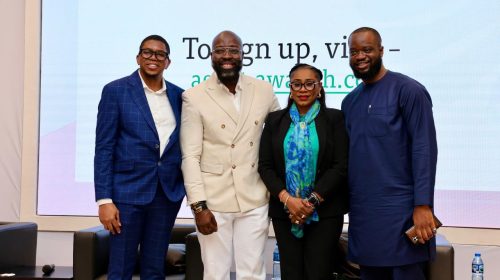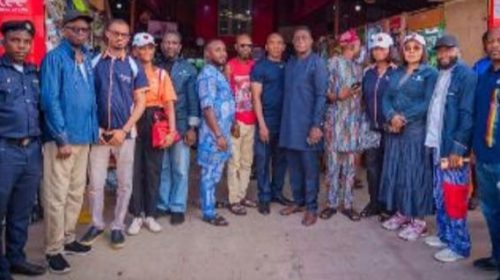Akinwuntan, Other Experts To Speak At CBU Entrepreneurship Dev. Summit

By Ngozi Onyeakusi—Former managing director and chief executive officer, MD/CEO, of Eco Bank Nigeria, Mr. Patrick Akinwuntan will lead seasoned financial experts to address seeming critical factors challenging entrepreneurship growth and specifically the huge number of small and medium enterprises in the country.
Akinwuntan has confirmed to chair the 20th annual lecture and 29th anniversary of the Catholic Brothers United, CBU, of the St. Agnes Catholic Church Maryland, Lagos, with Governor Hope Uzodinma, of Imo state as chief guest of honour.
Chairman of the conference organizing committee, Mr. Gabriel Akumhegie, said the theme of the conference, ‘Entrepreneurship Drive: A Tool For Mitigating Unemployment For National Growth, is apt given the declining growth of the country’s production sector.
Akumhegie, said the programme scheduled to hold on Sunday 22nd of October 2023, at the Mc Govern hall St Agnes Catholic Church, by 12pm, is coming given the outlook of Nigeria’s employment conditions for the third quarter of this year which dropped to the lowest in nearly three years on the back of petrol subsidy removal and naira devaluation.
Three industry experts, including Mr Nelson Akerele, the Chief Executive Director of Royal Exchange Prudential Life Assurance Plc, Dr. Mrs. Omotayo Omotosho, former Director General, Nigerian Tourism Development Commission ( NTDC) and Mr. Rotimi Oyekanmi, Partner, Apis Partner LLP & former Chairman, Renmoney MFB L.td, would form panel of discussants at the conference.
Citing, the latest aggregate Manufacturers CEOs Confidence Index (MCCI) of the Manufacturers Association of Nigeria (MAN), employment conditions for July-September of 2023 deteriorated below the 50 benchmark points to 46.6 points from 47.8 points in the previous quarter.
In a press statement by chairman publicity committee, Chika Izuora, the conference organizing committee in articulating the theme, duly observed that the global economy is currently facing significant challenges characterized by slow growth prospects, high inflation, and increased uncertainties.
One key consequence of these challenges is the aggressive increase in interest rates, the most significant in decades, aimed at combating persistent inflation which has equally affected activities of entrepreneurs in the country.
This tightening of financial conditions has also heightened concerns about mounting debt vulnerabilities in Nigeria and the Sub-Saharan Africa.
The conference theme also recognized the most recent survey by the Manufacturers Association of Nigeria, MAN, which showed that employment generation of the manufacturing sector declined to 6428 in the first half of 2023. This is an indication of 32.8 per cent reduction in employment generation capacity when compared with 9559 jobs generated in the first half of 2022.
Also, the data showed a shed of 313 jobs when compared with 6741 jobs created in the second half of 2022.
The decline in the number of jobs created in the sector during the period further highlighted the unfriendly business environment resulting from the hasty policies and residual effect of the currency redesign policy that led to naira crunch.
In the same vein, a total of 3567 jobs were lost in the first half of 2023, indicating 1855 more job lost when compared with the 1709 job lost in corresponding half of 2022 and 850 more jobs lost when compared with 2708 jobs lost in the last half of 2022.
Akumhegie, also identified that one of the major hurdles confronting the manufacturing sector and indeed small scale entrepreneurs in the country is the high cost of obtaining funds.
This challenge is substantiated by data MAN gathered during the fieldwork for the first half of 2023 report.
According to this data, the average lending rate to the manufacturing sector from commercial banks remained high at 24 per cent when compared with what was recorded in the corresponding half of 2022.
However, the cost of funds for the manufacturers increased by 2.0 percentage points when compared with 22.0 per cent recorded in the second half of 2022.
The lending rates offered by commercial banks to industries are significantly influenced by the continuous upward adjustments in the Monetary Policy Rate.
These adjustments aim to maintain a favorable real interest rate environment, with the goal of attracting foreign investment inflow, defending the domestic currency (Naira) and curbing the spiraling inflation.
Akumhegie, said a line up of financial experts who will feature at the conference will help in addressing these challenges and proffer solutions that will help in providing jobs for the people.






Leave a Reply